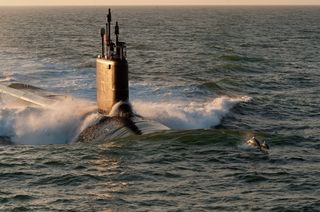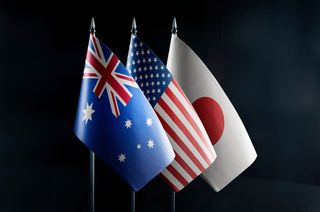US News & World Report
By Nicole Hemmer
On Monday, Florida Republican Sen. Marco Rubio kicked off his presidential campaign with a firm denunciation of the politicians stuck in the “ideas of the past.” Referring to Hillary Clinton as a candidate “promising to take us back to yesterday,” he declared that “yesterday is over, and we are never going back.” But in calling for “a new American Century” — the slogan of his campaign — Rubio is embracing a foreign policy that is both backward-looking and stubbornly resistant to historical insight.
“The American Century” is a slogan with a long history. Almost 75 years ago magazine publisher Henry Luce coined the phrase in an influential essay for Life magazine. In that essay, he upbraided Americans for failing to take up the mantle of global leadership that he believed was not only their right but their responsibility. As German bombs pummeled London, Luce insisted it was time “to accept wholeheartedly our duty and our opportunity as the most powerful and vital nation in the world … to exert upon the world the full impact of our influence, for such purposes as we see fit and by such means as we see fit.”
It took Pearl Harbor to persuade Americans to enter the war, but as World War II ended and the Cold War dawned, Luce’s vision of an active, interventionist America prevailed. The 20th century would indeed be the American century.
Yet by the mid-1990s, conservative foreign policymakers were anxious. The US was the world’s sole superpower in the wake of the Cold War. Despite this, policymakers in Washington seemed unwilling to exert upon the world the full impact of American influence, as Luce had urged. So in 1997, a group of conservatives that included Jeb Bush, Dick Cheney, Donald Rumsfeld and Paul Wolfowitz, launched a new organization: the Project for the New American Century.
The organization sought a return to a Reagan-era foreign policy. Its statement of principles laid out three pillars upon which the new American century would be built: “a military that is strong and ready to meet both present and future challenges; a foreign policy that boldly and purposefully promotes American principles abroad; and national leadership that accepts the United States' global responsibilities.”
These are exactly the principles Rubio laid out in his speech on Monday. And that’s a big problem, because the authors of the Project for the New American Century's statement of principles were also the architects of America’s disastrous war in Iraq. There has never been a genuine reckoning with this legacy in the Republican Party. Though it cost the GOP the 2006 and 2008 elections, the party’s neoconservative wing has not only remained intact but has continued to dominate its foreign policy vision.
In calling for a new American century, Rubio is doubling down on those reckless principles. That he can openly embrace the ideas that led to the most disastrous decade in U.S. foreign policy history shows how little the GOP has learned from the failures of the last decade, and how calcified its foreign policy thinking has become.
What’s worse, there is little likelihood that Rubio will have to account for the disastrous effects of the foreign policy he is championing. Kentucky Sen. Rand Paul, who for years was the reliably noninterventionist voice in the GOP, has turned into a campaign-trail saber-rattler. And Hillary Clinton, the Democratic Party’s likely nominee, has little to gain from reminding voters of the calamitous failures of the Iraq War, which she voted to authorize while in the Senate. But as the leading neoconservative voice in the race, Rubio should explain how his policies would differ from those of Rumsfeld and Cheney, and how he will lead the nation into the future while still peddling the failed policies of the past.
This article was originally published in the US News & World Report




